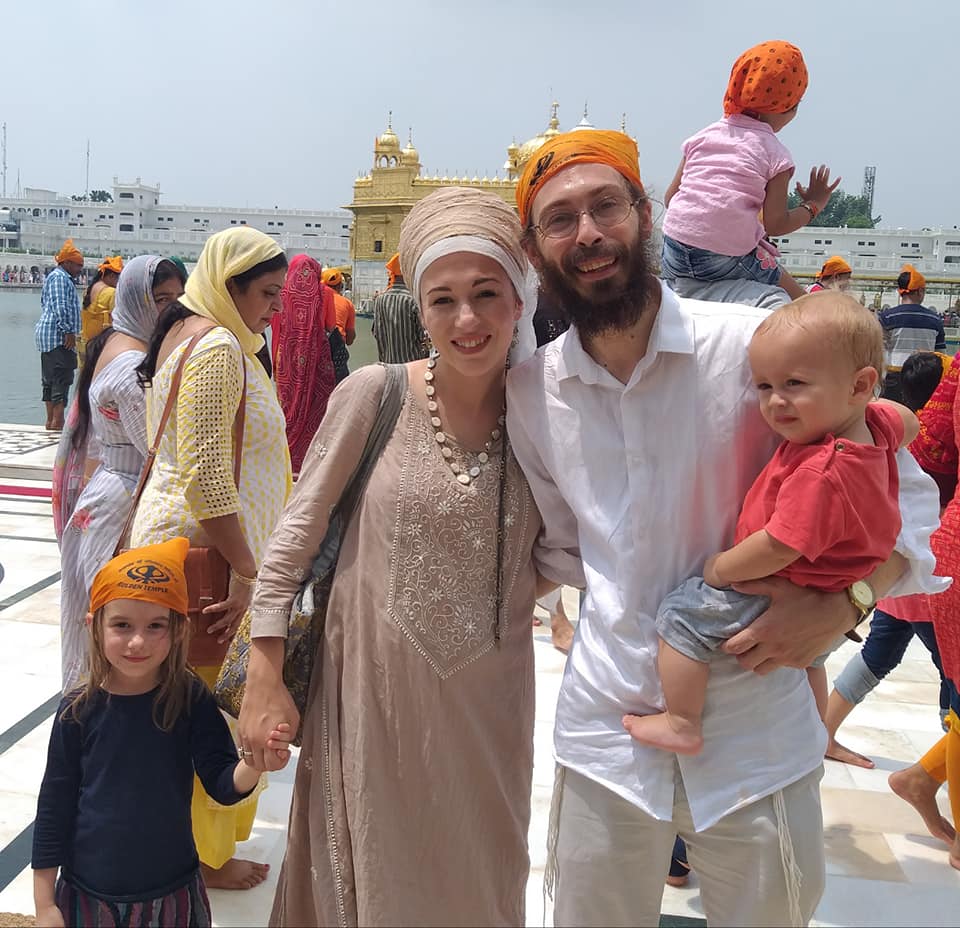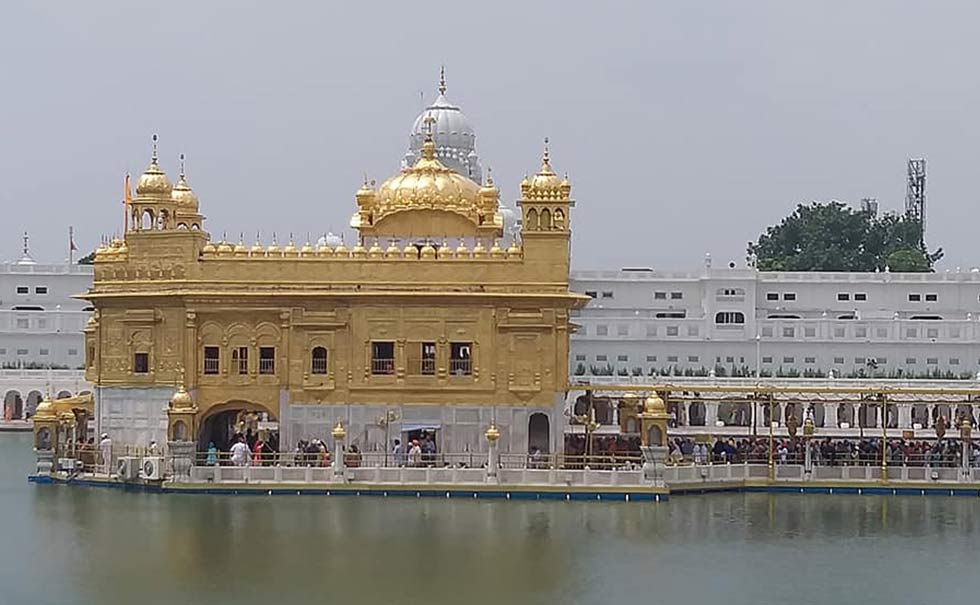Golden Temple – Amritsar, India
Perhaps one of the most profound moments of our experience in India was our visit to the Golden Temple in Amritsar, where they are able to feed 50,000 people on a regular day and over 100,000 on certain festival days regardless of religion, class, color, creed or caste.

The Golden Temple is the central worship of the Sikh religion, the site itself a pool of water first built in 1577 by Guru Ram Das the 4th of the 10 Gurus of Sikhism. Located in the north of the Punjab neighboring with Pakistan and Jammu and Kashmir. Many other practices at the site can be dated as far back as the time of Guru Nanak, the first guru of the Sikh people who started the tradition in 1481 of the Langar the practice of feeding others as a devotion to God.
The Temple is staffed mostly by volunteers who come anywhere from a few hours to several weeks, the raw materials are sent from all over the country and several kitchens are required to produce as much food as is needed for the daily visitors. All the food served is strictly vegetarian and prepared in accordance with the Sikh dietary laws.

Sikhism is a pantheistic religion of approximately 25 million people (McLeod, William Hewat. 2019 [1998]. “Sikhism”. Encyclopædia Britannica.) – making it is also the worlds 9th largest religion, the religion focuses on ethical behavior, acts of community service and devotions to a singular God.
A good friend of my father’s Mr. Charanjiv Sing arranged for us to meet with one of the permeant staff of the Temple who undertakes certain organization of the kitchen and the supply chain for the massive operation. Walking with him around the temple it was immediate to perceive his deep pride and honor in the work feeding so many, “all come, rich & poor, they eat the same meal together, in God’s eyes they are equal, all beloved”. We pass through multiple halls of thousands of people sitting in neat rows with identical plates of fresh food, almost more impressive than the hot bustling kitchens were the areas where hundreds of volunteers sat peeling onions, garlic, cutting vegetables, washing the stainless steel plates, cups and spoons – everything is spotless and organized.

I think many of us believe that our religion, spirituality, or our sense of secular morality espouses (or should!) acts of kindness and service to mankind, however, we all fall short in relation to the magnitude of the human need for compassion and something to eat.
We need to ask the pressing question concerning why our own temples/synagogues/churches/mosques cannot do more for mankind collectively, why amongst the great charities of our own religion we have lost seemingly this collective humility of sitting together and actively making food for those who need. That is not to say that there are not wonderful organizations that perform work like soup kitchens and meals on wheels services, however, the question remains in my heart why this has not been the focus of humanity.
I am deeply inspired by what I experienced at the Golden Temple, great humility and reverence for all human life is tangibly felt there, a simplicity of divine service “the hungry come and they are fed, the able feed them” – within this the constant stream of devotees arriving to perform their ablutions in the waters that they consider sacred.
Rabbi Jonathan Francis Goldschmidt 2020 ©
The above is part of an upcoming book on his experiences as the Rabbi and scholar in residence of the Paradesi Synagogue in Cochin and his journeys across India.
For information please contact: rabbi.goldschmidt@gmail.com




